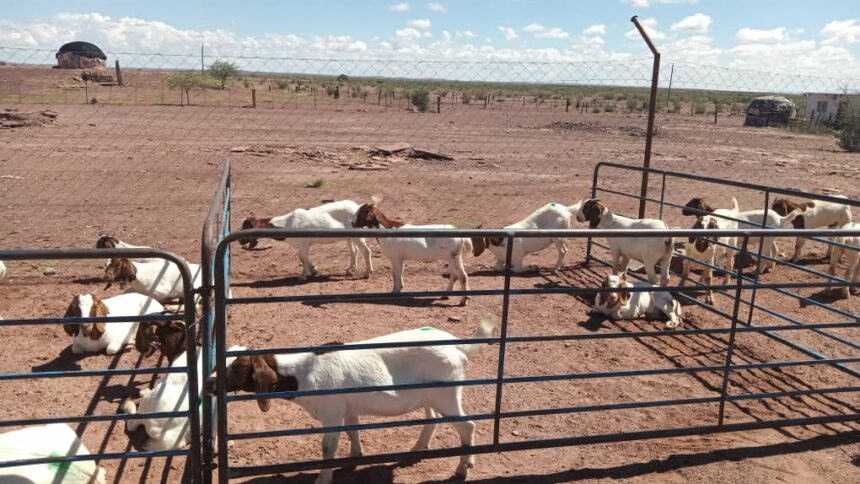GAINACHAS – The Gainachas Farmers’ Development Co-operative (GFDC) recently handed over 36 goat ewes to its 12 oldest members to encourage for them to increase their small livestock numbers for better sustainability.
GFDC chairperson Paul Kahuika said as a group of 46 small stock farmers, they started the initiative in 2007 in order to stand together and assist each other as one community.
“We secured a N$520 000 loan from Agribank in 2009, from which we bought 92 mixed goat ewes and rams as a start-up,” he shared with AgriToday.
Kahuika said through smart marketing methods, the co-operative settled the loan in 2018. But most of the goats they had bought with the loan died from the drought, which affected most of the farmers in the area.
“Unfortunately, the devastating drought forced many of us to scale down our farming activities, as most of the livestock were dying from the drought. Although we nearly dissolved the co-operative, we acted upon advice not to borrow money again. During a meeting in 2020, we agreed that those farmers whose animals survived should each contribute one goat to a pool. In addition, Berseba constituency councillor Jeremias Goeieman’s office donated 26 goat ewes and one ram to strengthen our business. It has helped us very much,” he added.
He said the co-operative is now thriving, as they recently marketed 100 kapaters (castrated young goat rams) for funds to buy animal medicines and pay the salaries of their two employees.
Going forward, the idea is to donate goat ewes every year to 15 identified beneficiaries on a rational basis of oldest to the youngest member until 2027, by which time everyone would have been catered for.
“They should then in return, when in a more favourable position, plough back to the co-operative by means of donating goats so that the numbers can increase rapidly from the current 190 mixed small livestock on our register”, he continued.
One of the recipients, Fredricka Haman (75), could not hide her joy when she received her three goat ewes.
“This is the first time that I get such assistance, and it will further inspire me not to give up, although I lost many of my animals due to the drought,” she said.
The pensioner decried the challenges they face through the continuous relocation to new places with their animals in search of better grazing.
Another recipient, 64-year-old Paul Kohima, said despite his age, he still has the energy and time to handle farming activities since all his children moved to bigger towns for employment opportunities.
“I am really thankful for the co-operative for their humble deed, and I promise to give back once my livestock numbers have increased significantly to do so”.
Councillor Goeieman applauded the group for their perseverance and determination.
“Despite the drought and sporadic livestock theft, you are still standing and carry on with what you love, namely farming. We did not make a mistake to choose you as a group, as you can now cater for all your other needs from the income you are receiving when selling the animals.”


